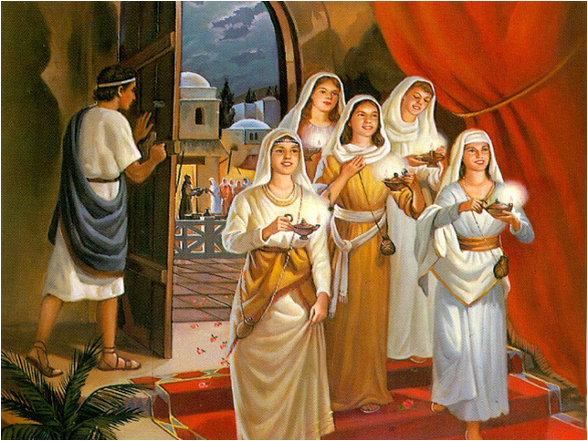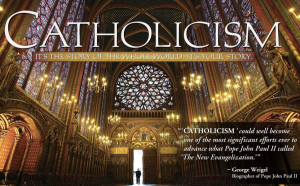In a few short days, here in my diocese, we will be celebrating the ordination to the priesthood of young men who have spent years in prayer and discernment of God’s will for their lives. The readings for this ancient liturgy have been chosen by the bishop and, while the first two readings (Isaiah 61:1-3 and 2 Corinthians 4:1-2, 5-7) clearly point to the anointing of each of these men and God’s specific call of each of these men by name, the Gospel reading from John 15: 9-17 seems to shift focuses slightly. It says, “you are my friends if you keep my commands. I no longer call you slaves… I have called you friends.”
While, of course, this reading continues the theme of being chosen, it seems to shift away from the idea of this outward anointing and this outward calling to an inward movement of the spirit toward God. Jesus says, “if you keep my commands, you are my friends.” This requires an action on the part of the individual; he must make a choice to follow the commands of the Lord! Of course the interesting dichotomy comes next when the Lord points out that in following his commands we are not his slaves. How can this be? One
who is commanded to do something and who follows those commands is often seen as nothing more than a slave, but Jesus says these very people have been called his friends! I think the reason can be found in Pope Francis’s message on the 2014 World Day of Prayer for Vocations. He states:
“Many times we have prayed with the words of the Psalmist: ‘It is he who made us, and we are his; we are his people, and the sheep of his pasture’ (Ps 100:3); or: ‘The Lord has chosen Jacob for himself, Israel as his own possession’ (Ps 135:4). And yet we are God’s “possession” not in the sense of a possession that renders us slaves, but rather of a strong bond that unites us to God and one another, in accord with a covenant that is eternal, ‘for his steadfast love endures for ever’ (Ps 136).”

That word, “covenant”, is essential to the entire message. Jesus is not asking us, who are followers of his, to be friends in the sense of hanging out together on the weekend around a pizza or getting on the phone everyone once in awhile to check in. When he uses the word “friend” here, he very clearly expects more: he expects a covenantal relationship. When do we, as humans, enter into a covenant? On our wedding day and, for those who have been chosen, on the day of our ordination! And when we think about these human relationships, that of a husband and wife or of a priest for his flock, we completely understand the close comparison between friend and slave. We honor the one we love and we do what she “commands” us to do because we put ourselves in the position of a slave out of the great love we have for the other! We humble ourselves, we sacrifice ourselves and we given entirely of ourselves because our love makes us bound to that person! It is one of the most beautiful paradoxes that can be found in this world and Jesus wants that of each one of us.
Our vocation, our call to holiness, is rooted in the great love Jesus has for us and in his invitation for us to be possessed by that love. He wants us to freely make of ourselves slaves to his divine will, and in so doing, to become his closest friends. He doesn’t coerce us as a slave is forced by his master, rather he invites us to love him with the same amount of love with which he loves us. And let us not forget what St. Paul said of that great love, “rather he emptied himself, taking the form of a slave” (Phil. 2:7). Let us pray, then, that those who will be ordained priests on May 19th and those who will be entering into sacramental marriages throughout this upcoming wedding season will truly allow themselves to be possessed by God’s great love, that through that possession, they may draw us and one another closer to their best friend, Jesus Christ.
 Lent has officially started, and perhaps on your Facebook or Twitter or Instagram feed you have already been inundated with articles and infographs like “40 things to give up this Lent” or “15 Ways to Make the Most out of Lent” or even “10 Things You Shouldn’t Give Up this Lent.” But so many of those articles seem to assume something that I’m not certain it is safe to assume: What is the purpose of fasting?
Lent has officially started, and perhaps on your Facebook or Twitter or Instagram feed you have already been inundated with articles and infographs like “40 things to give up this Lent” or “15 Ways to Make the Most out of Lent” or even “10 Things You Shouldn’t Give Up this Lent.” But so many of those articles seem to assume something that I’m not certain it is safe to assume: What is the purpose of fasting?
 As I was walking back to my car I was struck with another thought.That’s the kind of greeting all of us are hoping to receive as we enter our true home that
As I was walking back to my car I was struck with another thought.That’s the kind of greeting all of us are hoping to receive as we enter our true home that 



